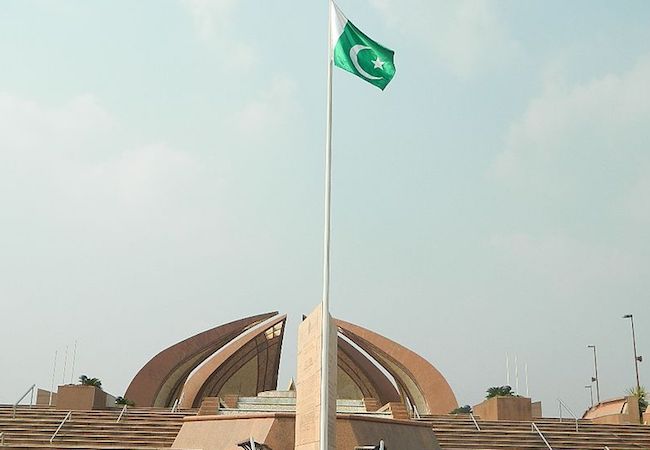PTM: The civil-military tension in Pakistan

By Zahid Khan
Recently, the DG ISPR warned the leadership of PTM (Pustoon Tahafuz Movement), which have driven state to the brink. If the violence escalates, it could ignite a chaos, destabilization and refuge crisis all over the Pakistan. The PTM leadership enjoyed more freedom in terms of expressions and thoughts within a state. Unequivocally, the state establishment and civil government have given them full right of speeches and peaceful protests under the state constitution, and even agreed upon their several legal claims, but not overall. Initially, the manifesto of PTM was sound clear with five key demands such as, Justice for Naqeeb Mehud and legal action against SSP Rao Anwar; the establishment of judicial commission to investigate the extra-judicial killing across the state; Release missing persons or trial them in courts; De-mining of FATA; the morality issue at check post in Waziristan; and an end of sudden curfew.
The more complex scenario and ambiguity turned into the movement when they added more demands to the central manifesto and incepted abruptly the covert coordination with external links, i.e., at the procession of Lahore, they demanded to form a ‘truth and reconciliation commission’ to investigate assorted incidents, including thousands of people handed-over to United State. The PTM leadership called for the presence of an international guarantor, particularly the UN, stipulated at the gathering of swat. Undoubtedly, the majority of followers are rallying around legal grievances that can be negotiated politically but, the state should be focused on those elements that want to hijack the key manifesto of PTM movement for their own political agendas.
Moreover, several state analyst arguing that “Manzoor Pashteen” provoking rhetoric against the establishment reflects that he might be used by foreign hands, or internal anti-state elements. Certainly, the thinking approach of both sides is still stuck with the zero-sum approach. In-fact, the key manifesto of PTM is highly crucial and permissible under the state constitution, but not as a whole. Nevertheless, the issue sparked seriously due to the communication gap and the casual mediation role between the both parties. Therefore, the state authorities should address the issue timely to avoid more deteriorate consequences between them, otherwise, it will leads to the form of civil-military war.
With the inception of the movement, a diminutive gap experiences between PTM leadership and establishment in Pakistan, which led to the persuasive, persistent and unrealistic myths that have eroded faith in both. Therefore, a strategic decision-making or mediation role is pre-requisite, and must be handed over to the pro-state “civil political leadership” rather than professional military officers. The government incumbents and civil political leadership can make possible the deal through dialogues and mutual consensus. Regardless, a national issue can be resolved within a state under the state constitution. The power paradigm is not a rational remedy and ultimately, the issue will be settled through table-talks and dialogues.
Unequivocally, the media can also play a crucial role in state issue. At whatever and whenever moment, things happen within a state or rest of the world, the media informs its audience timely. During the fifth generation warfare, It is the most powerful pillar of the state. Therefore, Jim Morrison stated that “Whoever controls the media, controls the mind”. Subsequently, the biased media is an open challenge to the state issue, which propagating negative aspect of the issue and misleading the nation. Thus, a nimble and vibrant role of state media is essential to defeat propaganda-based media. In this milieu, the media is the first and last line of defense as stated by DG ISPR in his recent conference. Hence, the pro-state media (print and soft) can provide gratis platform to the leadership of PTM and their secret manifesto and they can expose bluntly the agenda of PTM whether, it’s a true voice of victimized masses or leading an anti-state agenda with the help of external elements.
Probably, the internal and external elements can exploit the movement narrative for their own “covert” political agendas. Initially, the PTM draws its support mainly from middle-class youth and the poor strata of society. Later on, the supporters of Pushtoon ethnic political parties, specifically, ANP (Awami National Party) and the PMAP (Pakhtunkhwa Milli Awami Party) joined the movement. These political parties and several analysts say PTM is unlikely to translate into a political force. Moreover, the state intelligentsia must plan the “counter” strategy to check and balance of all anti-state entities, particularly, the regional and global competitors of state.Last but not least, the PTM supporters are citizens of Pakistan and unequivocal, they are rallying around their legitimate grievances. The state authorities should listen the voices of true victimized citizens and must consider their possible rights under the state constitution. Otherwise, the communication gap and power paradigm will shift the issue towards state civil-military war, chaos, and destabilization.
Zahid Khan, PhD (Global Studies), Center for Global Studies, College of Liberal Arts, Shanghai University, PR China.




